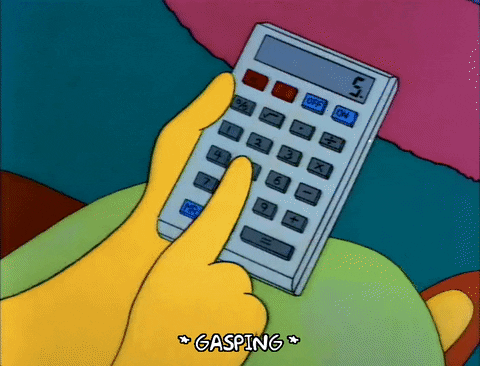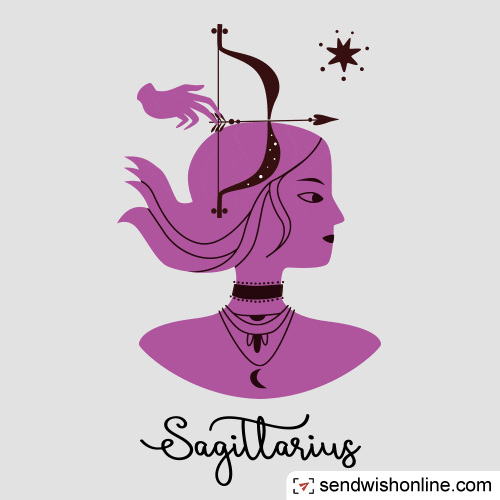Reiki is a holistic healing practice that originated in Japan, focusing on the transfer of universal life energy through the hands of a practitioner to promote physical, emotional, and spiritual well-being. You may find that Reiki sessions involve gentle touch or the practitioner hovering their hands just above your body. This technique aims to balance your energy, helping to alleviate stress and encourage relaxation.
The term “Reiki” itself is derived from two Japanese words: “Rei,” meaning universal, and “Ki,” which refers to life energy. This practice is based on the belief that everyone possesses this life energy, and when it flows freely, you experience optimal health and vitality. In a typical Reiki session, you might lie down fully clothed while the practitioner lightly places their hands on or near your body.
You may feel a sense of warmth or tingling as the energy flows, which can be deeply relaxing. Many people report feeling a profound sense of peace during and after a session. Reiki is not limited to physical healing; it also addresses emotional and spiritual issues, making it a versatile tool for personal growth and healing.
As you explore this practice, you may discover that it offers a unique approach to wellness that complements other forms of treatment.
Key Takeaways
- Reiki is a form of alternative therapy that uses energy healing to promote relaxation and overall well-being.
- Reiki originated in Japan in the early 20th century and has since spread to Western countries, gaining popularity as a complementary treatment.
- Reiki works by channeling energy through the practitioner’s hands to the recipient, promoting balance and harmony in the body’s energy centers.
- The benefits of Reiki include stress reduction, pain relief, improved sleep, and enhanced emotional well-being.
- While Reiki is not a replacement for Western medicine, it can be used in conjunction with traditional medical treatments to support overall health and healing.
The History of Reiki
The origins of Reiki can be traced back to the early 20th century when Dr. Mikao Usui, a Japanese Buddhist monk, developed the practice after a profound spiritual experience during a 21-day meditation retreat on Mount Kurama. You might find it fascinating that Usui’s journey began with a quest for healing knowledge, leading him to study ancient texts and spiritual practices.
After his transformative experience, he began to teach others how to harness this energy for healing purposes, establishing the first Reiki clinic in Tokyo in 1922. As you delve deeper into the history of Reiki, you’ll discover that it was further popularized by Hawayo Takata, a Japanese-American woman who brought the practice to the West in the late 1930s. Takata trained numerous practitioners and established a lineage that continues to this day.
The spread of Reiki across the globe has led to various interpretations and adaptations of the original practice, but the core principles remain intact. Understanding this historical context can enhance your appreciation for Reiki as a time-honored healing art that has evolved while retaining its essence.
How Reiki Works

Reiki operates on the principle that everything in the universe is composed of energy, including your body and mind. When you experience stress or trauma, this energy can become blocked or imbalanced, leading to physical or emotional discomfort. During a Reiki session, the practitioner acts as a conduit for universal life energy, channeling it into your body to help restore balance and promote healing.
You may notice that this process feels intuitive and gentle, allowing you to relax deeply as the energy flows. The effectiveness of Reiki lies in its ability to tap into your body’s natural healing mechanisms. As you receive Reiki, your body may enter a state of deep relaxation, which can stimulate the parasympathetic nervous system—the part responsible for rest and recovery.
This state can help lower cortisol levels, reduce anxiety, and promote overall well-being. You might find it interesting that many people report experiencing not only physical sensations during a session but also emotional releases or insights that contribute to their healing journey.
The Benefits of Reiki
| Benefits of Reiki |
|---|
| Reduces stress and anxiety |
| Promotes relaxation and inner peace |
| Enhances spiritual growth |
| Supports the body’s natural healing process |
| Improves sleep quality |
| Relieves pain and discomfort |
The benefits of Reiki are vast and varied, making it an appealing option for many seeking alternative healing methods. One of the most commonly reported benefits is stress reduction. In today’s fast-paced world, you may often feel overwhelmed by daily pressures, and Reiki can provide a sanctuary of calmness.
By promoting relaxation and reducing stress levels, Reiki can help improve your overall quality of life. In addition to stress relief, you might find that Reiki can assist with pain management. Many individuals have reported significant reductions in chronic pain conditions after receiving Reiki treatments.
This could be due to the way Reiki encourages relaxation and enhances your body’s natural ability to heal itself. Furthermore, Reiki has been known to support emotional healing by helping you process feelings such as grief, anxiety, or depression. As you explore these benefits, you may discover that Reiki offers a holistic approach to wellness that addresses not just physical ailments but also emotional and spiritual needs.
Reiki and Western Medicine
As you navigate the landscape of modern healthcare, you may wonder how Reiki fits into the realm of Western medicine. While traditional medical practices often focus on treating symptoms with medications or surgeries, Reiki offers a complementary approach that emphasizes holistic healing. Many healthcare professionals are beginning to recognize the value of integrating alternative therapies like Reiki into conventional treatment plans.
You might be interested to learn that some hospitals and clinics have started incorporating Reiki into their patient care programs. Research has shown that patients receiving Reiki often experience reduced anxiety levels before surgeries or medical procedures. Additionally, studies suggest that Reiki can enhance recovery times and improve overall patient satisfaction.
By bridging the gap between Eastern and Western healing practices, you may find that Reiki provides a valuable tool for enhancing your health and well-being.
Reiki and Mental Health

Mental health is an essential aspect of overall well-being, and you may find that Reiki can play a supportive role in managing various mental health conditions. Many individuals struggling with anxiety or depression have reported positive experiences with Reiki as part of their self-care routine. The calming effects of Reiki can help create a safe space for emotional release and healing.
During a session, you might find yourself connecting with your emotions in a way that feels nurturing and supportive. This process can lead to greater self-awareness and understanding of your mental health challenges. As you explore the potential benefits of Reiki for mental health, you may discover that it encourages mindfulness and promotes a sense of inner peace—qualities that are invaluable in navigating life’s ups and downs.
Reiki and Spiritual Healing
Reiki is often regarded as a spiritual practice as much as it is a physical one. If you’re seeking spiritual growth or connection, you may find that Reiki provides an avenue for exploration and discovery. The practice encourages you to tap into your intuition and connect with your higher self, fostering a deeper understanding of your life’s purpose.
As you engage with Reiki on a spiritual level, you might experience moments of clarity or insight that guide you on your journey. Many practitioners report feeling more aligned with their spiritual beliefs after receiving or practicing Reiki. This connection can lead to profound transformations in your life as you cultivate a greater sense of peace and purpose.
How to Learn Reiki
If you’re intrigued by the idea of learning Reiki for yourself or others, you’re in luck! There are various pathways to becoming attuned to this healing art. Most people begin their journey by finding a qualified Reiki master who offers training courses.
These courses typically consist of multiple levels—often referred to as First Degree, Second Degree, and Master Level—each building upon the previous one. As you embark on this learning journey, you’ll gain knowledge about the principles of Reiki, hand positions for treatment, and techniques for channeling energy effectively. You may also participate in hands-on practice sessions where you’ll have the opportunity to give and receive Reiki under the guidance of your instructor.
This experiential learning is crucial for developing your skills and confidence as a practitioner. In conclusion, exploring the world of Reiki can be an enriching experience that offers numerous benefits for your physical, emotional, and spiritual well-being. Whether you’re seeking relief from stress or looking to deepen your spiritual connection, Reiki provides a unique approach to healing that resonates with many individuals today.
As you consider learning this practice for yourself or incorporating it into your wellness routine, remember that each person’s journey with Reiki is unique—embrace yours with an open heart and mind.
Click here to subscribe for more >
FAQs
What is Reiki?
Reiki is a form of alternative therapy that originated in Japan. It involves the transfer of energy from the practitioner’s palms to their patient in order to encourage emotional or physical healing.
How does Reiki work?
Reiki is based on the idea that a “life force energy” flows through all living things. Practitioners believe that if this energy is low, then we are more likely to get sick or feel stress, and if it is high, we are more capable of being happy and healthy.
What are the benefits of Reiki?
Some people report feeling relaxed and at peace after a Reiki session. It is also believed to help with pain management, reduce stress, and promote overall well-being.
Is Reiki a religious practice?
Reiki is not a religious practice. It is a spiritual healing art that is not tied to any specific religion or religious belief system.
Is Reiki safe?
Reiki is generally considered to be safe and non-invasive. It is important to seek out a qualified and experienced practitioner for a Reiki session.
Is Reiki a substitute for medical treatment?
Reiki is not a substitute for medical treatment. It is often used as a complementary therapy alongside conventional medical treatment. It is important to consult with a healthcare professional for any medical concerns.




